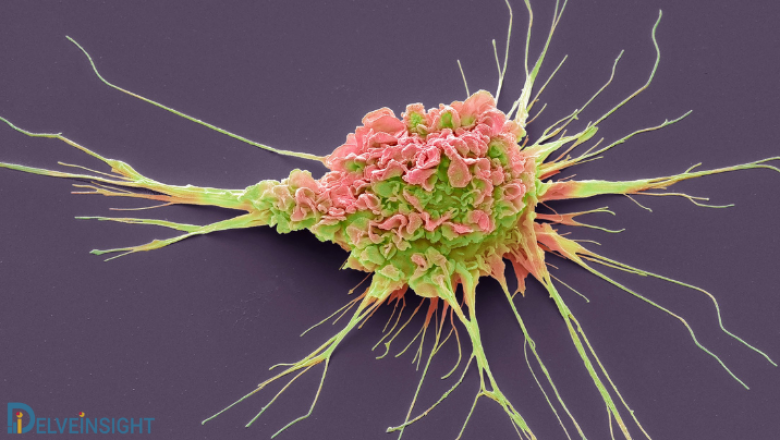views
This unique capability makes them powerful tools for targeted treatment of various diseases. From treating chronic conditions to advancing regenerative medicine, exosome-based treatments are unlocking new possibilities in precision healthcare.
1. Exosome-Based Treatments for Atopic Dermatitis
Atopic dermatitis, a chronic inflammatory skin condition, is a major focus of research in exosome-based therapies. Exosomes derived from stem cells exhibit anti-inflammatory and regenerative properties, making them a promising solution for this condition. These therapies aim to modulate immune responses and repair damaged skin barriers, offering long-term relief without the side effects commonly associated with steroids or immunosuppressants. Clinical trials are underway to evaluate the safety and efficacy of exosome-based treatments for atopic dermatitis, potentially providing a game-changing alternative to traditional approaches.
2. Treatment of Neurodegenerative Conditions
The potential of exosomes in the treatment of neurodegenerative conditions such as Alzheimer's, Parkinson's, and amyotrophic lateral sclerosis (ALS) is gaining significant attention. Exosomes can cross the blood-brain barrier, making them ideal carriers for delivering therapeutic agents directly to affected neural tissues. Researchers are exploring how exosome-based therapies can be used to deliver neuroprotective molecules, reduce inflammation, and promote neuronal repair. These treatments hold the promise of slowing disease progression and improving quality of life for patients with neurodegenerative disorders.
3. Cancer Immunotherapy with Exosomes
Exosome-based therapies are also making strides in cancer treatment, particularly in the field of immunotherapy. Exosomes derived from tumor cells can be engineered to carry antigens that stimulate the immune system to recognize and attack cancer cells. Additionally, exosomes loaded with therapeutic agents such as siRNA or chemotherapy drugs are being tested to improve the precision and efficacy of cancer treatments. These advancements highlight the potential of exosome-based therapies to revolutionize how cancer is managed, offering personalized and less toxic treatment options.
4. Regenerative Medicine and Wound Healing
In regenerative medicine, exosomes derived from mesenchymal stem cells (MSCs) are being developed to promote tissue repair and regeneration. Their ability to enhance cell proliferation, angiogenesis, and anti-inflammatory responses makes them valuable for treating wounds, burns, and other tissue injuries. For example, exosome-based therapies are being tested to accelerate healing in diabetic ulcers, a condition that has been notoriously difficult to treat. These treatments provide a safer and more effective alternative to traditional methods, further advancing the field of regenerative medicine.
5. Cardiovascular Disease Management
Exosomes are also being investigated for their potential to treat cardiovascular diseases, including myocardial infarction and heart failure. By delivering cardioprotective molecules, such as microRNAs and proteins, exosomes can reduce inflammation, prevent cell death, and stimulate tissue repair in damaged heart tissue. Preclinical studies have shown promising results, paving the way for future clinical trials. These therapies could offer a transformative approach to managing cardiovascular conditions, particularly in patients who are unresponsive to conventional treatments.
The Future of Exosome-Based Therapies
Exosome-based therapies are at the forefront of personalized medicine, offering targeted and efficient solutions for a wide range of medical conditions. From exosome-based treatments for atopic dermatitis to innovative approaches in the treatment of neurodegenerative conditions, these therapies are unlocking new possibilities in healthcare. As research advances and clinical trials expand, exosomes are poised to redefine treatment paradigms, providing safer, more effective, and highly personalized medical solutions.
Latest Report Offered By DelveInsigh:
Chronic Wounds Market | Congenital Adrenal Hyperplasia Market | Cytokine Release Syndrome Market | Granulomatosis With Polyangiitis Market | Iga Nephropathy Market | Von Willebrand Disease Market | Eosinophilic Esophagitis Market | B-cell Non-hodgkin Lymphoma Market | Alcohol Use Disorder Market | Seborrhea Market | Choroideremia Market | Mrna Based Vaccines And Therapeutics Market | Benefits Of Robotics In Healthcare | Lewy Body Dementia | Energy Based Aesthetic Devices Market | Ependymoma Market | Fertility Monitoring Devices Market | Germ Cell Tumor Market | Hernia Repair Devices Market | Hot Flashes Market | Implantable Cardioverter Defibrillators Market | Keloid Market | Orthopedic Power Devices Market | Pouchitis Market | Surgical Sealant Market | Transthyretin Amyloidosis Market | Vascular Graft Devices Market | Lip And Oral Cavity Cancer Market | Sinus Dilation Devices Market | Inguinal Hernia Market | Plaque Psoriasis Market | Plasmodium Vivax Malaria Market | Hdac Inhibitors Market | Peritoneal Dialysis Equipment Market | Adenosine Deaminase-severe Combined Immunodeficiency Market | Bone Resorption Market | Pelvic Inflammatory Disease Market






















Comments
0 comment